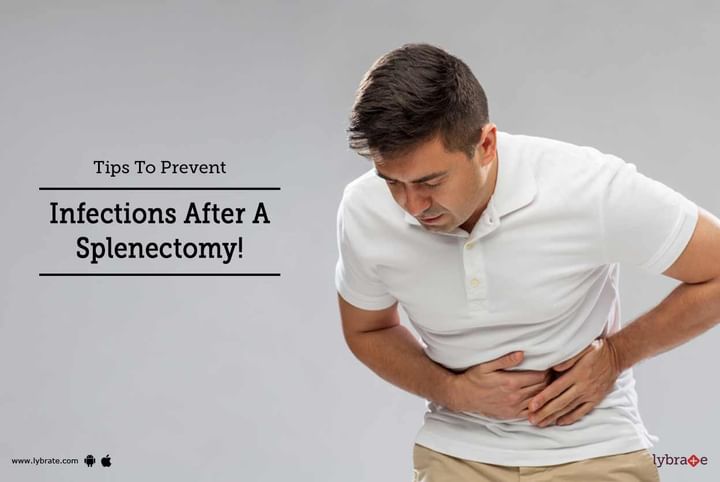Tips To Prevent Infections After A Splenectomy!
The spleen is a very important organ of the human body. A splenectomy is the process of removing the spleen from the human body. The spleen is a very small, fist-sized organ which is located under the rib cage, close to the stomach. The basic function of the spleen is removing the damaged or dead red blood cells. It also removes any kind of bacteria present in the bloodstream that can cause infections. When the spleen is removed, there are chances of infection that can be life-threatening if not treated. It is always better to prevent infections as soon as you see the symptoms.
Why do you need a Splenectomy?
There can be many reasons for the removal of the spleen from your body such as –
- In case, the spleen is damaged due to an accident, injury or in the process of an abdomen surgery.
- For treating some medical conditions such as lymphomas or leukemias.
- Overactivity of your spleen.
- In case any abnormalities found in the red blood cells of the body.
- Collagen vascular diseases
- In some rare cases, a person may be born without a spleen.
Sepsis:
The infection that is caused due to the removal of the spleen is called sepsis. This is a life-threatening condition where the bacteria that causes the infection keeps on spreading to the entire body and bloodstream. It is going to impact the normal functioning of the human body. Symptoms of sepsis include high fever, shivering, headache, confusion, drowsiness, severe pain in the abdominal area and increased heartbeat. But all this starts with a simple respiratory problem such as a respiratory tract infection.
Tips to prevent infections after a Splenectomy:
If you have had a splenectomy, then it is very important for you to take certain precautions such as:
- You need to take certain vaccines such as HIB, pneumococcal or meningococcal and they will reduce the risk of getting an infection after the removal of the spleen.
- You will have to take some additional doses of the above vaccines in order to maintain the effect on your body.
- You need to take antibiotics on a daily basis to prevent a sepsis infection.
- The first stage or symptoms start with chills or fever and hence you should make sure to maintain a set of antibiotics. Start taking them as soon as you see these symptoms.
- If you are travelling to another country, then make sure you carry the antibiotics with you. If you notice any kind of symptoms, you need to take the medicine immediately.
You need to discuss the above-listed points with your doctor, especially if you require more information about how to prevent infection after the spleen is removed. In case you have a concern or query you can always consult an expert & get answers to your questions!



+1.svg)
